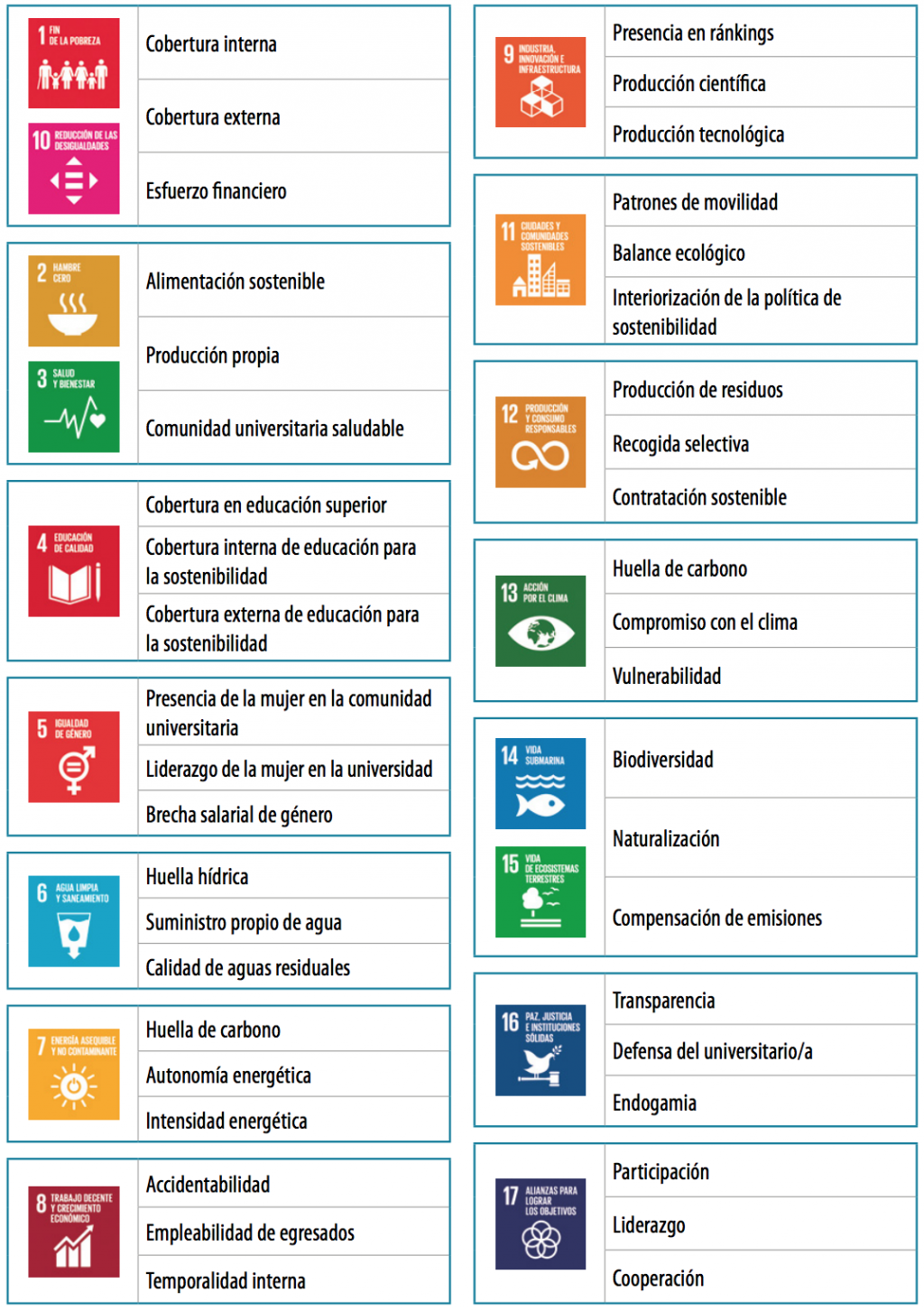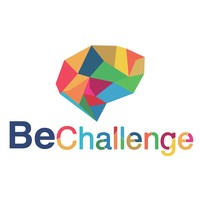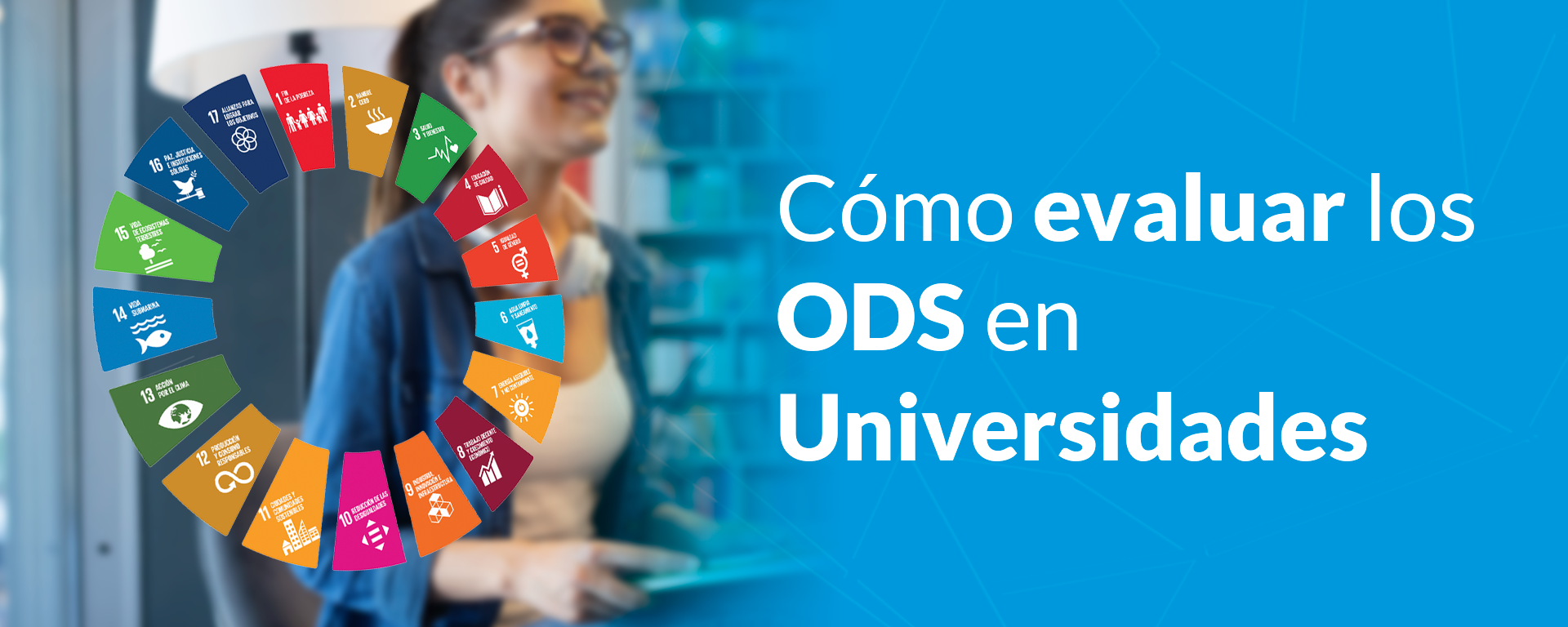Why is it important to introduce the SDGs in universities?
The role of universities is key to the implementation of the 2030 Agenda and the achievement of the goals contained in the 17 Sustainable Development Goals (SDGs) it envisages.
Universities in Spain have valuable experience in developing environmental management, sustainability, social responsibility and international cooperation programs. In general, in all key aspects covered by the 2030 Agenda, although the appearance of it commits to a more transversal and comprehensive treatment, which makes their action more effective.
But how can we assess the SDGs in universities?
In the previous article: “How to introduce the SDGs in universities”, we provided the 5 steps that needed to be taken to introduce the Sustainable Development Goals in university, in this article we will talk more specifically about how to approach the fifth step: Monitorization, evaluation and communication university aspects on the SDGs
Although there is no single assessment of the university’s contribution to the 2030 Agenda, there are certain features that need to be incorporated. As it follows:
How and why to evaluate. Evaluation serves different purposes: spread the efforts made, be accountable, compare performance competitively and/or find evidence about the changes generated.
Evaluation as a process.
In order to evaluate we need to have agreed the model to follow, which allows us to identify if we are far or close to the desired result. In this case, the model is set by the SDGs, whose application to the university context is necessary. Once the model has been agreed, we need to establish the evaluation criteria, the variables to be measured in the form of indicators that will have to be supplemented with rigorous information, to detect variations, with which we can then guide our action, because without a decision-making based on the evaluation results, we will not be talking about the proper evaluation.
Starting with what to evaluate for.
The definition of the reasons of the evaluation makes a distinction in the information to be collected and, consequently, in the techniques to be used. From the self-evaluation for the design of actions, but also for monitoring them. Moreover, to be concerned with the evaluation of results, as an impact, but also for recognition, whether this is in the form of certificates, awards, ranking or rating.
Engage those involved in the evaluation.
If universities have participated in the design of the system which is going to be evaluated, it will give greater legitimacy to the results, and find them more useful. In addition, it will help to give meaning to the assessment by contextualizing it by starting situations or baselines, and also descriptive variables, which can help to understand the strategies followed by each university and for a better recognition of rights and wrongs.
Consider all dimensions in the evaluation.
Conceptual models of institution-wide sustainability mainstreaming need to be rethought not only as a sum of indicators, but also by looking for those signals that allow for a joint assessment of both university and sustainability dimensions. Particular attention must be paid to its connection with areas such as quality assessment, which is the majority of current university systems and which allow us to see the effect that teaching and research are having on the change sought by the 2030 Agenda.
What to evaluate?
To propose variables to use as indicators, it is best to take as main premise their capacity to measure impact, identifying the changes produced in the SDGs in reference to their initial state and due to the actions taken. In this way what we achieve is to assess the effect not only on the university but on its area of influence. Efforts should be avoided, even if they are easier to measure, to measure the results that the SDGs are really aiming for.
Indicators
As you can see in this table, there is a summary of the impact self-assessment indicators of the university’s contribution to the 2030 Agenda proposed by the Spanish Network for Sustainable Development (REDS).

With this table you can start working on the specific indicators of each of the SDGs, once you have addressed the issue and made a brief statement of intentions we strongly advise you to go to the Panel of Indicators of Sustainable Development of the UPV/EHU since they have done a great job in defining their roadmap for the Agenda 2030.
Here is a quick exercise:
EXERCICE
What is your university doing to assess the impact of the SDGs?
Are you evaluating the impact or effort of your actions? What do you think would be better?
What could you do tomorrow and you are not doing?
Now that you’ve answered the previous questions, do the same exercise again, but this time, instead of asking yourself, “What can college do for...” ask yourself, “What can I do for...” remember that for the SDGs to be met, each and every one of us will have to do our bit, and that any first step, however small, can be the trigger for a big change.
What can BeChallenge do to help you introduce the SDGs at university?
BeChallenge has been designed from the beginning to develop social impact challenges and become the meeting point between universities, governments, companies and students, with a main objective, to promote and contribute to the development of Sustainable Development Goals.
The platform offers a collaborative environment that favors and promotes communication in every corner, apart from the chat that allows communication with individuals, teams, mentors and teachers. Both the resources proposed by the challenge organizers, as well as the solutions proposed by the participants, are collaborative environments in themselves that favor communication and feedback to design together the best solutions that can meet the challenges proposed by the SDGs.
The platform offers multiple types of challenges to suit the needs of your institution, if you want to work deeply on the challenge you can make a Full challenge that allows the development of very elaborate solutions through various iterations of feedback and mentoring, if on the other hand you need an express version we offer a method where participants can propose their outputs in only 3 phases and start working in teams from the beginning.
As an institution and depending upon the objectives you have set for your contribution to the SDGs, there may be a need to work on these challenges in different ways and at different levels. These are the challenges which may be public or private, they may be designed to be developed within the institution itself or seek the collaboration of other institutions. External mentors or even design challenges among several teachers so that interdisciplinary and transdisciplinary challenges are carried out.

In BeChallenge all challenges can be aligned with the SDGs which the challenge works towards, as well as you can automatically select the learning objectives proposed derived from each of the SDGs. Then you can analyze the SDGs that are being carried out in your institution through our analytics in order to observe what SDGs are being worked on and which ones should be focused on.
If you are interested in incorporating SDG into your university, contact us and we will help you to incorporate it into your curriculum, as we have already done with institutions around the world.
Do not hesitate to contact us: hello@bechallenge.io
IIf you have found this article interesting, you can follow us on our social networks and suscribe to our NEWSLETTER
[DISPLAY_ULTIMATE_PLUS]
References
- Red Española para el Desarrollo Sostenible (REDS): Cómo evaluar los ODS en las universidades. Disponible en: https://reds-sdsn.es/wp-content/uploads/2020/04/Gui%CC%81a-COMO-EVALUAR-ODS-2020-AAFF.pdf
- SDSN Australia/Pacific (2017): Getting started with the SDGs in universities: A guide for universities, higher education institutions, and the academic sector. Australia, New Zealand and Pacific Edition. Sustainable Development Solutions Network – Australia/Pacific, Melbourne.
- Declaración de la International Higher Education Declaration to Support the Implementation of the United Nations Sustainable Development Goals disponible en: http://www.guninetwork.org/files/international_higher_education_ declaration_to_support_the_implementation_of_the_united_nations_sustainable_development_goals_ eng.pdf
- Universidad del País Vasco/Euskal Herriko Unibertsitatea, UPV/EHU, (2019) Panel de Indicadores de Desarrollo Sostenible de la UPV/EHU. Seguimiento EHU Agenda 2030. Disponible en: https://www.ehu.eus/ documents/4736101/11938005/EHUagenda2030-Panel-Indicadores.pdf/cd1e90df-521d-504a-295fea5e3a196759
- United Nations (UN) General Assembly 2015, Transforming our world: The 2030 Agenda for Sustainable Development, A/RES/70/1 (21 October), www.refworld.org/ docid/57b6e3e44.html.
- United Nations Educational, Scientific and Cultural Organization (UNESCO) 2014, Sustainable development begins with education, UNESCO, Paris, unesdoc.unesco.org/ images/0023/002305/230508e.pdf.
- UNESCO 2016, ‘Education for people and planet: Creating sustainable futures for all’, New Global Education Monitoring Report Series, UNESCO, Paris, en.unesco.org/gem-report/report/2016/ education-people-and-planet-creating-sustainable-futures-all.
¿Quieres transformar el aprendizaje en tu institución?
Solicita una demo gratuita y descubre cómo BeChallenge te acompaña en el proceso.
Solicita una demo gratuita
